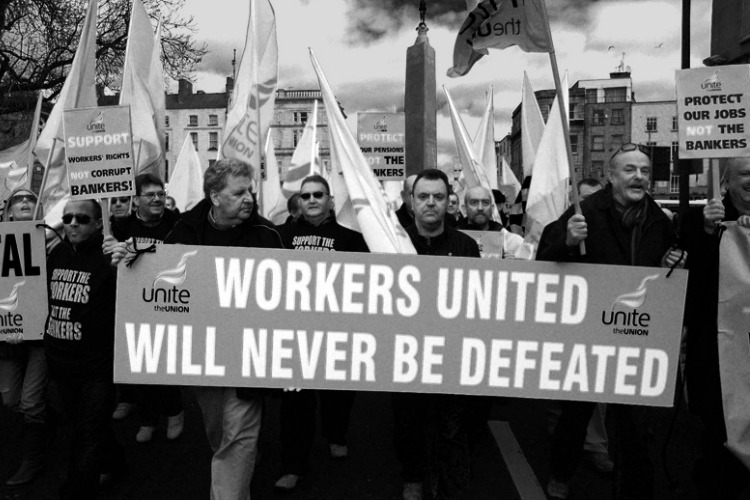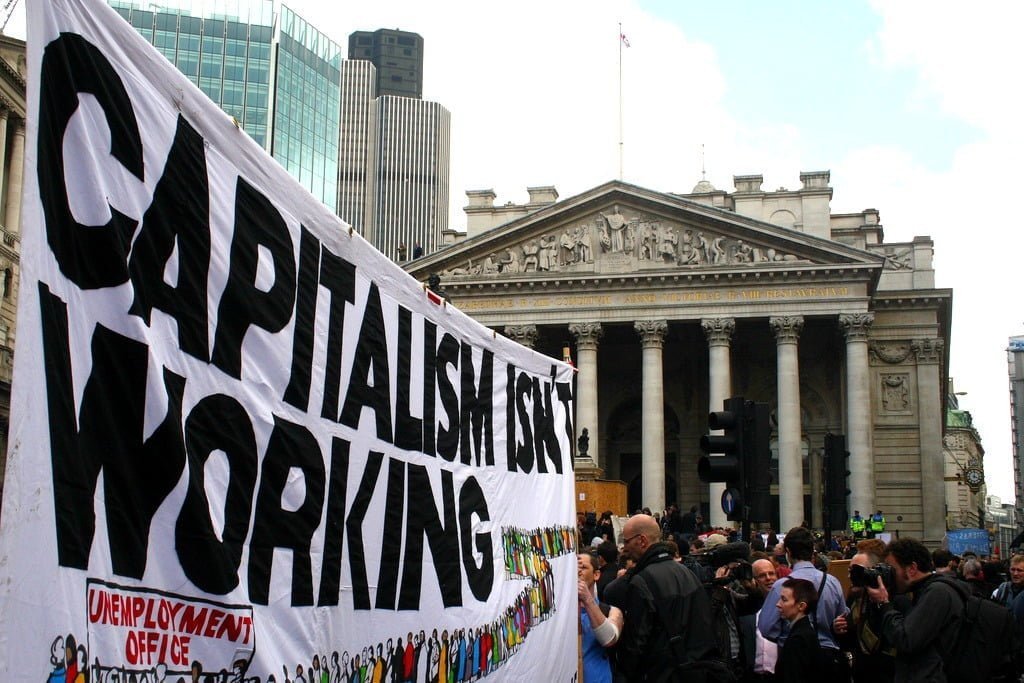UK firms are already shedding jobs due to the coronavirus crisis. This surge of cuts will become a deluge in the months ahead, as state support is removed. The labour movement must fight to make the bosses pay.
UK unemployment is set to soar to extreme levels, according to the Organisation for Economic Cooperation and Development (OECD), a club of rich nations.
UK unemployment – currently at 3.9% according to official figures – is predicted to rise to almost 12% by the end of the year, the highest level since 1984. The Office for Budget Responsibility is estimating a similar level of unemployment.
But in the event of a second wave of COVID-19, the OECD forecasts this will skyrocket to nearly 15%. This amounts to 5.2 million workers with no work.
‘Jobs bloodbath’
 Tens of thousands have already lost their jobs in the last few weeks. As of the latest announcements on 23 July, almost 150,000 have been made redundant as a result of the coronavirus crisis.
Tens of thousands have already lost their jobs in the last few weeks. As of the latest announcements on 23 July, almost 150,000 have been made redundant as a result of the coronavirus crisis.
Last week alone, household names such as Dyson and Marks & Spencer both announced plans to cut over 900 staff from their books. This comes on top of thousands of other recent job losses at firms such as British Airways, EasyJet, Centrica, BP, Rolls Royce, Boots, John Lewis, and HSBC.
This wave of job cuts will turn into a tsunami when the furlough scheme – covering the wages of more than nine million workers – comes to an end in October. One survey by the British Chambers of Commerce found that 29% of businesses were expecting to make redundancies in the months ahead.
On top of this is the added pressure of Brexit, which will hit UK exporters hard. Large tariffs could be put in place if there is a no-deal scenario, which is looking increasingly likely. Hence the predictions of a ‘jobs bloodbath’ by British manufacturers.
Small businesses cut jobs as furlough scheme winds down @DanielThomasLDN on the @fsb_policy survey https://t.co/27PX8rNwkL via @financialtimes
— Andrew Bounds (@AndyBounds) July 27, 2020
Logic of capitalism
 Soaring unemployment – past, present, and future – results from the logic of the capitalist system, where profits always come before people. Capitalism is a race to the bottom, where workers are considered to be completely expendable by elites.
Soaring unemployment – past, present, and future – results from the logic of the capitalist system, where profits always come before people. Capitalism is a race to the bottom, where workers are considered to be completely expendable by elites.
Whilst the super-rich continue to live a life of luxury, the rest of us are forced to suffer the full effects of the crisis. If the bosses can no longer profitably exploit us, we’re simply thrown onto the scrapheap.
Already there is a severe lack of job vacancies: only 333,000 between April and June 2020, the lowest level since 2001. Yet in only four months, between March and June 2020, the number of workers on UK payrolls fell by 649,000.
And this is before the government’s furlough system wraps up in the autumn. As the life support is removed, the full impact of the crisis will begin to hit home. Further businesses will close, more jobs will go, demand will slump, and the economy will enter into a vicious cycle.
We are likely to be facing a deep downward spiral of depression.
Fightback
 No doubt the bosses will seek to take advantage of this precarious situation by driving down wages in order to boost up profits. The labour movement must resist these attacks through organisation and militant industrial action.
No doubt the bosses will seek to take advantage of this precarious situation by driving down wages in order to boost up profits. The labour movement must resist these attacks through organisation and militant industrial action.
To combat unemployment, we must raise the demand for all necessary work to be shared out among the whole workforce, with no loss of pay. If the bosses say they can’t afford this, we say: Prove it! Open up the books!
To protect workers and their jobs, bankrupt industries must be nationalised, and run under democratic workers’ control. There must be no bailouts for the billionaires and the bosses. We cannot accept that the profits of a wealthy few must come before the livelihoods of millions.
The ruling class may promise certain temporary reforms, such as Boris Johnson’s pale imitation of the New Deal. But in the hands of the Tories, these serve only as instruments to prop up the failing system – in the interests of the rich.
The only permanent way out of the crisis is to implement a socialist programme under workers’ control, to plan production for need, not greed. We say: Make the bosses pay for this crisis!






